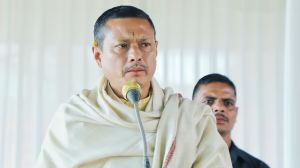Doc’s dilemma: breaking bad news
It is always a matter of concern to medical professionals from the West participating in workshops associated with life threatening diseases...

It is always a matter of concern to medical professionals from the West participating in workshops associated with life threatening diseases in India to learn that a significant number of patients here are not told their diagnosis or prognosis by their doctors. In the context from which they come, this is an unthinkable practice and would be labeled as unethical. They are, therefore, hard put to accept the arguments in defence of such an approach that are put forward by their Indian colleagues.
More recently, an indigenous source, the Comptroller and Auditor General of India, has in a report admonished the National Aids Control Organisation for non-disclosure of HIV status to all HIV-infected persons which “could lead to such persons unknowingly spreading the disease among uninfected persons”. As a cancer survivor and one who has been pioneering cancer support services, I believe that we need a better understanding of the issues involved.
The arguments put forward by the medical community to defend non-disclosure are by and large based on the following premises: one, the patient will not be able to handle the information. Two, the family’s wishes are paramount. Three, there is a risk of losing the patient to more “sympathetic” doctors.
Let us examine each one of these premises. It is understandable that no one wants to be the bearer of bad tidings. However, if one looks at the evidence, we all suffer losses of one kind or the other and are, by and large, capable of adjusting to them. It is now fairly well established that while some psychiatrically impaired patients may need psychoactive medication or therapy subsequent to a life-threatening diagnosis, the great majority are able to cope. What people need to facilitate this process is access to information, affordable medical treatment and expert counselling coupled with empathy from their families and society. What they get instead is misinformation, false hope, lack of an opportunity to discuss their concerns and feelings of rejection. We have observed that the isolation of cancer patients who have been kept in the dark is complete. All vital decisions that affect their treatment and lives are taken by others with the consequence that the patients begin to perceive themselves as unwanted. Inevitably this lead to depression and the family wonders why they have lost their will to live.
Collusion between the doctors and family to keep the facts away from the patient is explained away in terms of “Indian culture” which places the interests of the family above those of the individual. But this does not stop many doctors from breaking the diagnosis to the poor. The fact that most doctors come from the middle class and share the prejudices we all harbour is part of the problem, as is our growing fear of death. What doctors fail to realise is that by acquiescing with families they are missing out on an opportunity to educate and counsel them so that the best interests of the patient can be upheld.
We often see situations where patients are being prescribed more and more toxic and expensive therapies because the family and the doctor, rather than the patient, want them. Doctors have a responsibility to act as advocates for their patients who often are too sick, ill informed and dependent on their families to be able to influence the course of their treatment.
It is true that patients in India tend to “shop around”. However, this is not necessarily a bad thing. Everyone has a right to a second opinion and to chose a doctor with whom they are most comfortable. What happens more often than not is that people seek another doctor because their current doctor is unwilling or unable to spend the time to answer their queries. This is a great lacuna in our medical system where communication skills are not taught and where doctors are overburdened with work. Breaking bad news and communicating with people in distress is a compulsory part of medical training in most overseas colleges today. Since our doctors are not trained to do so, not only do many readily agree not to discuss the diagnosis or the prognosis with the patient, but in the instances when they do so, they tend to err in the other direction. Bad news is broken in a most brutal way and death sentences handed out: “You have only three months to live.”
Communication experts tell us that communication is an art that can be taught. There is a method to breaking bad news so that the person receiving is able to assimilate it. It is no longer a question of “to tell or not to tell” but rather “how to tell and what to tell”. Of course, all this is based on the premise that the patient has the right to know and that it is the duty of the doctor to tell. In India, however, there is as yet no consensus on this very basic premise.
With life threatening diseases such as cancer and HIV/AIDS on the rise perhaps it is time our medical personnel address this issue.
The writer is president, CanSupport, a support service for cancer patients



- 01
- 02
- 03
- 04
- 05




























